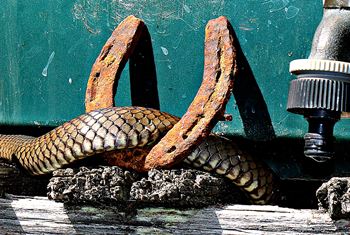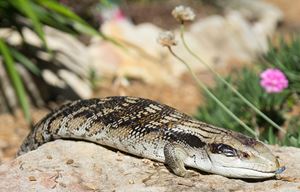Blog
Contact media@wires.org.au for enquiries or call 0416 272 153.
For the latest updates on bushfire recovery projects and emergency response
Read WIRES Emergency Recovery Plan and WIRES National Emergency Response Plan
Snakes shy and reclusive
 As we head into spring and the weather warms up there will be more frequent sightings of reptiles.
As we head into spring and the weather warms up there will be more frequent sightings of reptiles.
WIRES is beginning to receive calls from people concerned because they have seen a snake on their property.
WIRES is a volunteer organisation with trained reptile handlers. These dedicated people are volunteers who in most cases are employed in full time jobs and rescue and care for reptiles in their own time.
- Generally snakes are shy, reclusive animals and will avoid
confrontation with humans at all costs, preferring to flee if given the
opportunity.
- WIRES priority is to respond to situations where reptiles are injured.
- We are unable to respond to all the calls we receive where the snake is not injured or posing an immediate risk to human safety.
- We do however give advice to callers on steps they can take to safely and humanely encourage the snake to relocate elsewhere.
Snakes have no vested interest in attacking humans, and any bite occurrences are almost exclusively a defensive response to a perceived threat. Given this fact, it is reasonable to assume that, if left alone, the risk posed by any Australian snake would be negligible.
Many people also mistake harmless lizards for snakes. One of the most common lizards seen
in gardens is the Blue-tongue lizard. In the image here you can see why when only the tail is seen sometimes people mistakenly think they have seen a snake in the garden. Read more about these lizards.
Our advice if someone calls because they have seen a snake outside their home is that generally they will move on before very long.
WIRES is a volunteer organisation, not a government department and we are not government funded. Our free services are only able to be provided as result of the dedication of our volunteer rescuers and carers and the generosity of the general public who make donations
Search
Newsletter
Stay in touch and get our regular rescue stories, WIRES updates and a free copy of our 15 Ways to Help Wildlife ebook
Recent Posts
- Emergency Response Training for Wildlife Volunteers
- WIRES Introduces New Wildlife Rehabilitation Governance Courses in Collaboration with NPWS
- Community Support for Post-Bushfire Recovery of Wildlife in the Greater Blue Mountains
- Research Grants Program-2023 Recipients Announced
- National Koala Conference
- Nature Conservation Council's Bushfire Conference
- Support Stronger Nature Laws
- Helping Endangered Cockatoos: WIRES Grant Success Story
- Landmark Conservation Project Ensures The Future of The Northern Bettong
- Wildlife Road Collisions Unveiled

